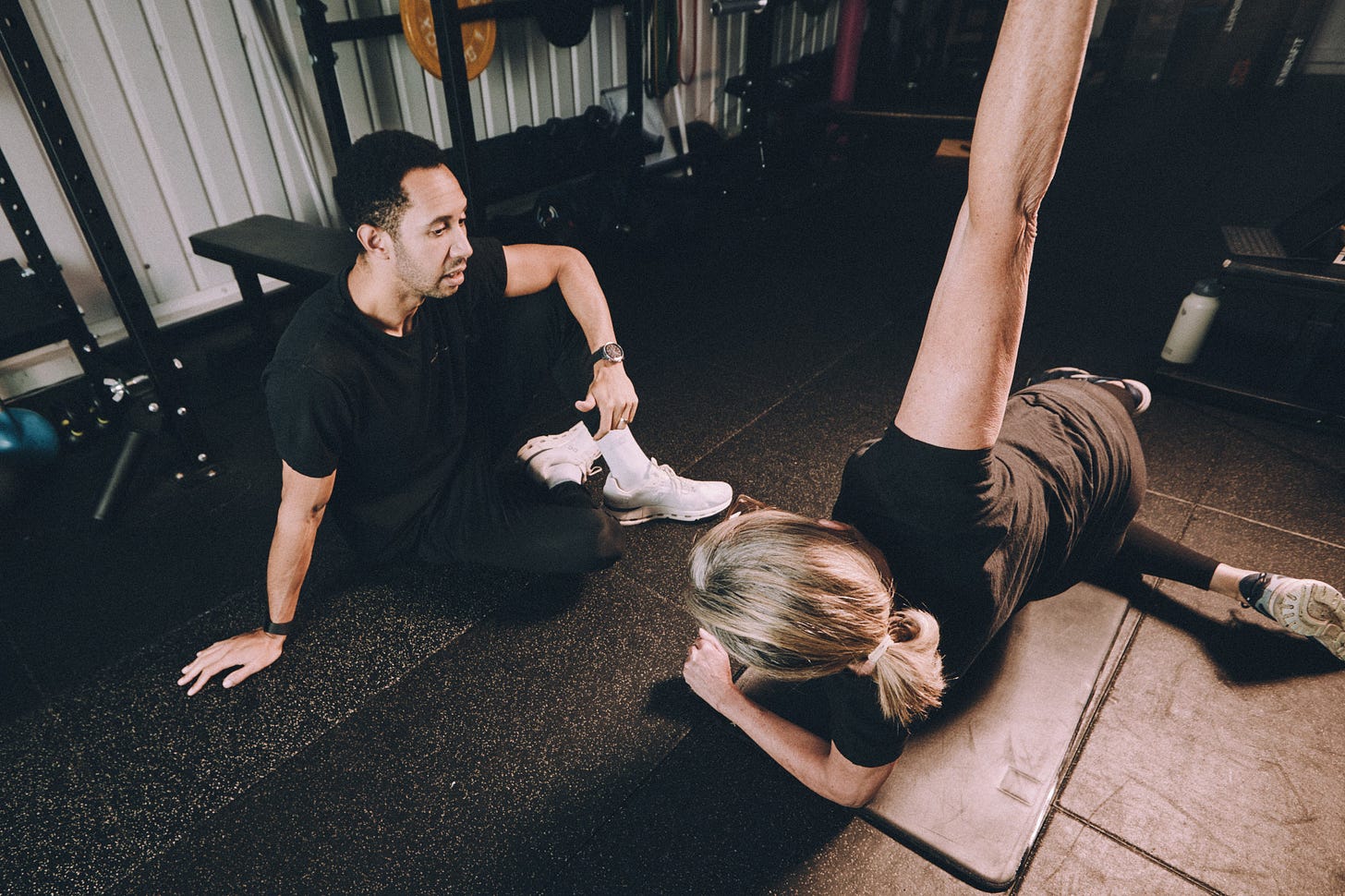The Discipline Blueprint: How to Take Control of Your Health and Fitness
Today’s newsletter is inspired by a post that stuck with me this week from Layne Norton on discipline.
Sure, it’s something we all admire (or perhaps even envy?) in others and aspire to cultivate in ourselves. But how do we actually instil discipline properly into our daily lives, particularly when it comes to training, nutrition, and overall health?
And I don’t mean Navy SEAL levels of discipline, just the basic kind that gets you where you want to be and makes you feel proud of yourself.
More importantly, how can we ensure that discipline drives us towards our goals rather than relying on fleeting motivation?
The answer lies in one crucial mindset shift: separating your feelings from the actions required of you.
Psst. Are you a paid subscriber? You can check out the video edition of this post at the bottom!
Motivation is the Fatal Error
Too many people rely on motivation to keep them on track with their fitness goals. But motivation is like a petrol tank - we use it up.
You might wake up feeling energised and ready to take on the world, but as the day wears on, life happens. The commute, stressful meetings, family obligations, and unexpected hurdles chip away at your motivation until there’s nothing left.
If motivation is your only driving force, what happens when it’s gone? You skip the workout. You grab an unhealthy meal. You push your goals to “tomorrow” (which, let’s be honest, never really comes).
This is why discipline matters. Discipline is the ability to act regardless of how you feel. It’s choosing what you know you need to do over what you feel like doing in the moment.
Overcoming Common Excuses with Discipline
Once we accept that discipline trumps motivation, we can start tackling the common barriers that get in the way of our training and nutrition.
1. "I Don't Feel Like It"
This is one of the most common excuses. You don’t feel like training today? That’s fine. Do it anyway and move swiftly on with your day.
One effective tool is the Two-Minute Rule:
- Commit to just *two minutes* of action.
- If you still don’t feel like continuing, you can stop—but chances are, once you start, you’ll keep going.
This works because the hardest part is getting started. Once you’ve begun, momentum takes over.
2. "The Weather is Bad"
Is it raining? Cold? Windy? Unless there’s a genuine safety concern (like a lightning storm), sorry - poor weather is *not* a valid excuse.
- You were going to shower after your run anyway—what’s the difference if you get wet?
- Your clothes were going in the wash regardless—so a little mud won’t hurt.
The discomfort of bad weather is temporary. The regret of skipping a session lasts much longer.
Embrace the dirty work. Roll your sleeves up (or rather, put your hood up), and out you go - make it a positive experience.
3. "I Didn’t Sleep Well"
Of course, sleep is important. But skipping a workout because of a bad night’s sleep is a slippery slope.
- If you’re genuinely exhausted, adjust your training—maybe a lower-intensity session instead of skipping altogether.
- Get your session done, then take a nap later if needed.
The key is to stop letting poor sleep be an automatic reason to opt out.
4. "I’m Too Busy"
This is the most common and, for many, the most difficult to overcome. But let’s be real:
- If you don’t prioritise your health now, your body will *force* you to prioritise it later—through illness, pain, or lack of mobility.
- No job, boss, or deadline will care about your well-being as much as you should.
You might need to have some difficult conversations - perhaps with a boss, a colleague, family member, or even yourself—about making time for your health.
- Could you negotiate leaving work on time a few days a week?
- Could you schedule workouts *before* the chaos of the day begins?
- Could you cut down on Netflix binges to free up time?
Being busy isn’t an excuse—it’s a problem with a solution (if you’re prepared to work towards one).
Vigilance: The Key to Long-Term Success
Discipline isn’t just about saying yes to training; it’s about being *vigilant* about what truly prevents you from showing up.
Yes, there are legitimate reasons to skip a session:
- If you have the flu, rest is the right choice.
- If you have an injury, modifying your training is necessary.
But most excuses aren’t legitimate barriers—they’re mental roadblocks we create to justify inaction. The moment you start questioning your own excuses, you take back control.
The Bottom Line: Your Health is Non-Negotiable
Ultimately, this all comes down to one thing: *your health is your responsibility*.
Every decision you make—whether to train, eat well, or take the easy way out—compounds over time. The choice is simple:
- Stay disciplined, take control, and build a strong, resilient body.
- Let excuses win, and face the long-term consequences.
There’s no in-between.
So, next time you catch yourself thinking, ‘I don’t feel like it’ - take a deep breath and remind yourself:
It doesn’t matter how I feel. It matters what I do.
Not sure how it all fits together? Just drop me a DM now to get started.
Paid Subscriber Video Edition:
Keep reading with a 7-day free trial
Subscribe to The Art of Movement Newsletter to keep reading this post and get 7 days of free access to the full post archives.





